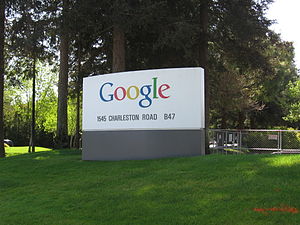'Where's my reading list?' I hear you ask. 'How am I supposed to write this dumb essay if I don't know what books to read?'
Well, that's kind of the point. Remember that learning outcome from last week? Students passing this module should be able to locate, read and review a body of research evidence. You're being assessed on your ability to track down, all by yourself, the stuff you need to write this essay. It's a major part of the task. So here are a few tips.
1. Use technology
In my day (yawn), we used to have to traipse to the university library and root through dusty old journals to find the articles we wanted. Then they would have to be photocopied (which we always imagined was a pretty good substitute for actually reading them). Now, of course, we have a world of knowledge at our fingertips. You can use the internet to access your own library's catalogue (including online resources), but you can also access the catalogues of libraries all over the world—some of which may not actually be all that far away. You can look at some of the excellent science blogs that are out there. And you can access numerous books that have been put online through Google Books and other projects.
2. Wean yourself off Wikipedia
I use Wikipedia all the time. It's a great place to start finding out about a topic, and much of it is good, reliable, well-researched material. But make sure it is only a starting point, and be very selective. To meet Wikipedia's editorial standards, articles are supposed to have proper references and further links at the bottom. If you don't see these, or if you see warnings about the article's reliability, take what you read there with a pinch of salt and move on.
3. Get smart with Google
Many of these warnings apply to Google and other search engines. Proceed with caution, and be wise to what Google can do. You probably already know that Google has some specific tools such as Google Scholar, which can be great for finding academic references and which also gives information on how often an article has been cited on the internet. It doesn't stop there, though. Google's Options feature allow you to choose to search only blogs, for example, or to order results by the date in which they appeared, or to restrict the time range of a search.
4. Make friends with a database
Wikipedia and Google are only the appetizers for your research feast, and many of your lecturers would prefer that you got straight on to the main course. This will involve a pig-out on the main bibliographic databases for your discipline, such as Web of Science. Your library's online catalogue should give you an easy link to these (in Durham, choose Databases from the main library homepage; Web of Science can be found as part of Web of Knowledge). The possibilities of these databases are endless, and, if used properly, they can be incomparable research tools. So much so that I'm inspired to do an entire post on this topic next week.
5. Go beyond the lecture material
You probably won't have a specific reading list for your essay, but you will have some relevant references on the topic from your lectures. These are likely to be important, high-quality articles carefully selected for their academic qualities. But they should not satisfy you. If you only write about the research your lecturer has told you about, you will have failed to demonstrate a key academic skill: the capacity for self-directed research. Use the lecture materials as a jumping-off point for looking at what else the authors of those articles have written, for example, or checking what other studies have cited the articles mentioned.
6. Use primary material
You will get credit for showing that you have found your own research material, but you will further impress your markers if can show that you have been to primary sources. By primary sources, I mean journal articles, edited research volumes, and monographs (the term given to academic books usually with one or two authors). In other disciplines, materials such as historical documents, letters and original texts will count as primary sources. Textbooks count as secondary material. You might initially learn about a study through a textbook, but as long as you go on to read the actual article, you can count it as a primary source. The more evidence you can give that you have worked from primary rather than secondary sources, the more impressive your essay will look.
7. Keep it fresh
Your lecturer is probably a lonely individual who last saw real life some time in the 1980s. Use your essay as an opportunity to tell him or her about what is new. I know that I myself feel a tingle of excitement when I read an undergraduate essay that includes references to articles published that year, or to things that are still in press (accepted for publication but not yet actually published). The bibliographic databases mentioned above will help you to keep up with the very latest research, as will blogs and news channels such the BBC. (With blogs and news sites, make sure you read the actual articles, or else be clear that you are using material garnered from a secondary source.) Don't overdo it, though, in your quest for modernity. 'Classic' articles are classic for a reason: because they have stood the test of time and made a real contribution to the discipline. A good balance between the venerable and the edgy is the thing to aim for.
Subscribe to:
Post Comments (Atom)

![Reblog this post [with Zemanta]](http://img.zemanta.com/reblog_e.png?x-id=0dd695e7-55be-4edd-b972-62c1f405d983)



No comments:
Post a Comment
Note: Only a member of this blog may post a comment.